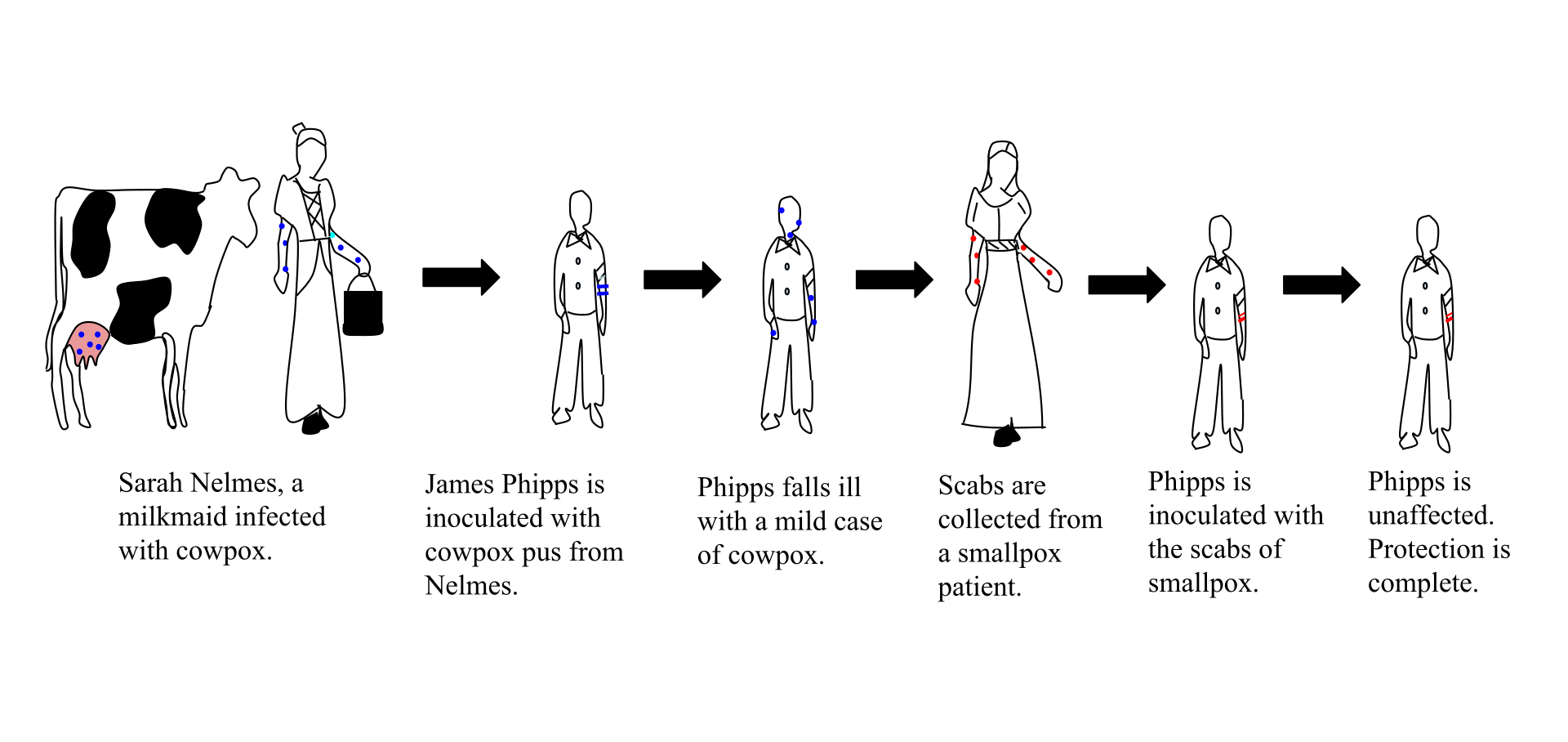Edward Jenner (Berkeley, 17 de maio de 1749 - Berkeley, 26 de janeiro de 1823) foi um naturalista e médico britânico que exercia medicina em Berkeley, Gloucestershire, conhecido pela invenção da vacina da varíola
- a primeira imunização deste tipo na história do ocidente. Afirma-se
que os chineses tenham desenvolvido uma técnica de imunização
anteriormente a Jenner. Eles trituravam as cascas das feridas produzidas
pela varíola, onde o vírus estava presente, porém morto, e sopravam o
pó através de um cano de bambu nas narinas das crianças. O sistema
imunológico delas produzia uma reação contra o vírus morto e, quando
expostas ao vírus vivo, o organismo já sabia como reagir, livrando os
pequenos da doença.
in Wikipédia
Noting the common observation that milkmaids were generally immune to smallpox, Jenner postulated that the pus in the blisters that milkmaids received from cowpox (a disease similar to smallpox, but much less virulent) protected them from smallpox. He may already have heard of Benjamin Jesty's success.
On 14 May 1796, Jenner tested his hypothesis by inoculating James Phipps,
a boy eight years old (the son of Jenner's gardener), with pus scraped
from the cowpox blisters on the hands of Sarah Nelmes, a milkmaid who
had caught cowpox from a cow called Blossom,
whose hide now hangs on the wall of the St George's medical school
library (now in Tooting). Phipps was the 17th case described in Jenner's
first paper on vaccination.
Jenner inoculated Phipps in both arms that day, subsequently
producing in Phipps a fever and some uneasiness but no full-blown
infection. Later, he injected Phipps with variolous material,
the routine method of immunization at that time. No disease followed.
The boy was later challenged with variolous material and again showed no
sign of infection.
in Wikipédia




Sem comentários:
Enviar um comentário